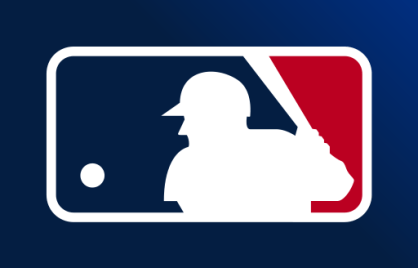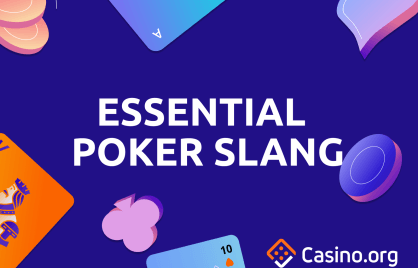Sports Betting With Your Head: The Key to Smart Wagering

Summarize this post
Sports Betting With Your Head: What You’ll Learn
- Emotional Awareness: Understand the impact of emotions on betting decisions and how to recognize when feelings might cloud your judgment.
- Rational Decision-Making: Learn techniques to make data-driven decisions and set clear criteria for placing bets, helping you stay focused on logic.
- Bankroll Management: Discover effective strategies for managing your bankroll to minimize losses and ensure sustainable betting practices.
- Establishing Betting Guidelines: Explore how to create personal rules for betting that align with rational thinking and reduce impulsive decisions.
- Analyzing Bets Objectively: Gain insight into evaluating bets based on statistical analysis and historical data to improve your chances of success.
One of the biggest mistakes a new bettor can make is betting with their heart and not their head.
Instead of handicapping a game based on the data-driven merits of the head-to-head matchup at hand, many “public” bettors make their picks based on gut instinct. They don’t track line movement, bet splits or lean on historically profitable betting systems.
The pick selection process is largely based on feel and emotion, not numbers and facts. Truth be told, this is a losing approach and one of the main reasons why the house makes a killing, and public bettors fail to turn a profit.
Simply put, when you are betting based on emotion, you are injecting bias that often talks you into a bad bet and out of a good one. In the end, we are all human. We all hold inherent biases based on what we’ve been told and come to experience in our lives.
Acknowledge Your Biases
Unfortunately, bias is a recipe for disaster when it comes to betting on sports. Unlike the public, pro bettors or “wiseguys” never bet based on emotion. Instead, they only place a wager when they’ve located a data-backed edge on a particular game, which provides an advantage over the sportsbook.
The phrase might sound cliché but it’s true: “sharps bet numbers, not teams.”
While we can’t expect to become winning wiseguys overnight, we can place ourselves on the path to sharp data-driven wagering by attempting to eliminate bias from our handicapping.

Image Credit: Shutterstock AI/Shutterstock
Don’t Bet Like a Fan
The first step to removing bias from your handicapping is to stop betting like a fan. This is often easier said than done, of course, because most sports bettors start out as sports fans. However, you should never bet on your favorite team just because you want them to win.
For instance, let’s say you grew up a New England Patriots fan. You watched every Patriots game with your dad growing up, you have countless Patriots jerseys in your closet and your wall back home is filled with family photos at Patriots games.
With this in mind, you see the Patriots are playing the Jets this week and New England is listed as a 3-point favorite. Your fandom and bias tell you to automatically bet on the Patriots because you want to root for them. However, betting on the Patriots just because you love them isn’t reason enough to risk your hard-earned money on them.
Maybe the Jets are the sharp bet because they opened at +3.5 and have moved down to +3, signifying sharp action in their favor. However, because you are blinded by your fandom and bias, you make a bad bet based solely on emotion.
If you ask a true wiseguy who their favorite teams are, they’ll tell you it’s the team they’re betting on tonight.

Image Credit: Murrr Photo/Shutterstock
Ignore Media Hype
The second step to removing bias from your handicapping is to ignore media hype. This can be somewhat difficult because, as sports bettors, we are interested in consuming sports content. If we turn on the TV, we are inclined to flip to ESPN.
If we’re in the car, we turn on sports talk radio. If we’re on social media platforms like Instagram or TikTok, our feeds are likely curated with an endless stream of sports clips and opinions from others.
The problem with consuming sports media as a bettor is that it can influence your pick-selection process, often talking you into bad bets and out of good ones based on the false security of following the herd mentality.
For example, if you watch SportsCenter all week long and hear the analysts constantly hype up the Buffalo Bills, you are more likely to want to bet on them on Sunday. However, it’s important to note that sports media is driven almost exclusively by clicks and hot-takes, not actionable data-driven insight. The loudest (not soundest) voices get the most attention.
This media hype can lead to a media narrative, which influences the public to bet on one side or the other. As bettors, we should never bet on or against a team based solely upon what other people are telling us.
If an analyst says “I think” the Bills will crush Miami on Sunday or “I think” Josh Allen will light up the opposing defense, take it with a grain of salt. Thoughts are a byproduct of biases and they oftentimes have little basis in fact or data.

Image Credit: Shutterstock AI/Shutterstock
Watch Our For the Gambler’s Fallacy
Bettors should also look to avoid the Gambler’s Fallacy. This is the idea that something is “due.” After all, if something has happened at a high rate recently, it’s bound to go the other way soon, right?
Not exactly. Think of a roulette wheel that has landed on black five times in a row. Your first thought would likely be to bet red on the next spin because red is “due.” However, it’s just as likely that the next spin is black because each spin of the roulette wheel is independent of previous spins.
The same theory applies to sports betting. If a good team has lost two games in a row, many bettors assume they are “due” to bounce back and win their next game. But, in reality, there is just as much of a chance that they lose three straight.
Never bet based solely on the assumption that something is “due.” Good teams can keep losing and bad teams can keep winning in specific stretches of the season. There is no golden rule that a team is due.

Image Credit: janews/Shutterstock
Avoid Recency Bias
Public sports bettors are often paralyzed by recency bias. This is when bettors are influenced by what they saw last, outweighing the small sample size of recent performance over the larger sample size of a team’s season-long body of work.
For instance, if a team is coming off a big blowout win, bettors will look to bet on them or “tail” that team simply because they’re hot and looked good in their last game. Conversely, if a team just got blown out or looked terrible in their last game, bettors will look to bet against or “fade” them the next time out.
The problem with this thought process is that one game may be an outlier and not truly indicative of a team’s overall strength or weakness. Also, teams coming off a big win are often overvalued by the public while teams coming off a blowout loss are undervalued.

Image Credit: MAYA LAB/Shutterstock
Bet Based on Data, Not Bias
In the end, removing bias from your handicapping can be a difficult process. However, once you discover that betting like a fan, listening to media hype and being victimized by the Gambler’s Fallacy and recency bias is a losing strategy, it will open your eyes and force you to bet differently.
The key is to enter every bet with clear eyes and an open mind. If it helps, cover up the names of the teams. Don’t pick who you want, think or hope will win. Instead, pay attention to the market data.
What did the line open at? How has the line moved? What are the bet splits showing in terms of where the bets and dollars are leaning? Where are the sharps? Who does the public like? How have teams performed in similar situations historically?
We can never guarantee the outcome of a bet. There is no such thing as a lock. However, by doing our best to remove bias and instead focus on the betting market data at hand, we can ensure that we are making smart bets with our head and not our heart.
Title Image Credit: MAYA LAB/Shutterstock


